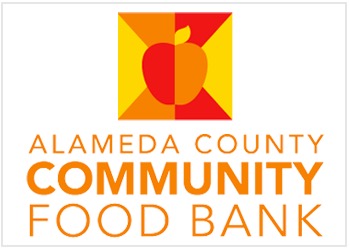The League of Women’s Voters (LWV) in Piedmont hosted an event and fundraiser on August 4 with the Executive Director of the Alameda County Community Food Bank (ACCFB), Suzan Bateson. Bateson said the number of children, adults, and seniors who need food from the food bank has doubled since the health crisis started.
The effects of COVID-19 on the food bank were seen immediately and dramatically. Their food helpline, which Bateson said is used as a barometer for community need, initially increased by 1000%. The number has decreased since then, but the need remains with unemployment rates in Alameda County currently over 13%.
COVID-19 has struck the county hardest in areas of high poverty where housing often means many people living under one roof with little space for distancing. Essential workers in these communities are mostly people of color, who do not have the luxury of working from home.
Bateson said “50% of [COVID] cases in Alameda county are Latinx, despite making up only 25% of the population. Additionally, the mortality rate is highest among the African American community.”
Bateson believes that the ACCFB was well prepared and positioned for the COVID-19 pandemic due to critical connections. The ACCFB has connections with county and state officials, the California Association of Food Banks, Feeding America, and emergency food providers all across the county.
When COVID-19 hit, the ACCFB sent out 30 percent more food to the community. By June, this amount was 78 percent higher than June 2019.
The ACCFB was producing one million pounds of food per week, which is enough to feed 60,000 families every day. Increasing food capacity was the biggest obstacle of the pandemic, despite help from emergency food providers.
The ACCFB had to completely shift how food was distributed in order to minimize congregations of people and maximize safety.
Before the pandemic, food was distributed in a manner similar to a farmers market. The ACCF has shifted to a contactless drive-thru system. In addition, 50 percent of the staff began working remotely instead of on-site. It was a challenge, Bateson said, to provide more food, more quickly, and with a completely new system.
There are now four primary drive-thru locations, where, in collaboration with partners, 20,000 people are being given food every week.
Children are at high risk of food insecurity as a result of COVID-19. This is because historically schools would provide meals and nourishment, but distance learning put an end to that.
Thus, feeding children is a primary concern of the ACCFB. In partnership with Steph and Ayesha Curry’s Eat, Learn, Play Foundation, the ACCFB first tackled the issue by preparing emergency bags of nutritious food that were distributed in Oakland Unified School District sites; this has now grown and is being executed in 12 different school districts for a total of 50,000 weekly meals.
You can donate to the ACCFB HEREand/or attend the virtual Savor the Season event and auction on Sunday, September 13 from 5:30 p.m. – 6:30 p.m.
